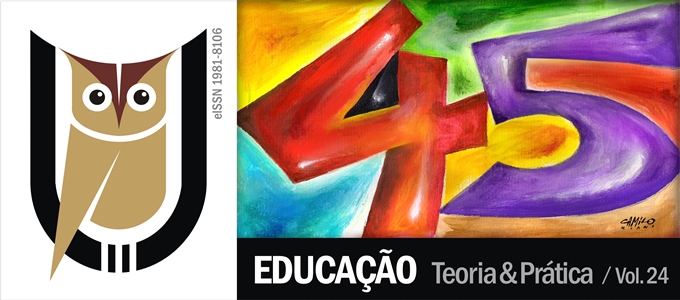Analysis of the theme bullying in feminine magazines for teens
DOI:
https://doi.org/10.18675/1981-8106.vol24.n45.p179-196Keywords:
Bullying. Media. Adolescente.Abstract
Practices of violence such as physical and verbal aggression, provocations, humiliations and exclusion that occur mainly among young people in schools are named as bullying and the aim of this qualitative-descriptive study was to investigate how this phenomenon is represented by magazines directed to teenage girls. The analysis was conducted in fifteen articles of four Brazilian magazines: Capricho, Todateen, Atrevida and Yes Teen through thematic categories: 1) Definitions and explanations about bullying; 2) Magazines’ proposals to the confrontation against bullying (2.1 Campaigns and orientations against bullying; 2.2 Advices about how to act in the presence of bullying; 2.3 Examples of “overcoming” to people who suffered bullying and 2.4 Advices given to people who practice bullying). It was identified the presence of hierarchies, stereotypes and the incentive to competition. There is the predominance of normative and excluding patterns, advices that individualize the issue and lack of critical reflection.Downloads
Additional Files
Published
How to Cite
Issue
Section
License
Authors who publish in this journal agree to the following terms:
a) Authors assign copyright to the journal, with the work simultaneously licensed under the Creative Commons Attribution License that allows sharing of the work with acknowledgment of authorship and publication in this journal.
b) The policy adopted by the Editorial Committee is to assign copyright only after a period of 30 months from the date of publication of the article. After this time, authors interested in publishing the same text in another work must send a letter to the Editorial Committee requesting the release of the assignment of copyright and wait for a response.
c) This journal provides public access to all its content, since this allows greater visibility and reach of published articles and reviews. For more information on this approach, visit the Public Knowledge Project, a project that developed this system to improve the academic and public quality of research, by distributing OJS as well as other software to support the public access publication system to academic sources. The names and email addresses on this website will be used exclusively for the purposes of the journal and will not be available for other purposes. This journal provides open any other party  This work is licensed under a Creative Commons License
This work is licensed under a Creative Commons License











